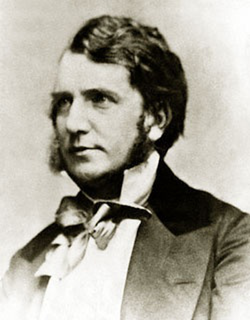A Quote by Robert Greene
We're selfish to some degree, that's not a criticism and it doesn't mean that we are all narcissists. But in any situation our minds naturally evolve to what's in it for me? How does this affect me? Can this benefit me? Can this harm me? Then we might move on from that and have a more altruistic point of view about things but that's almost always our initial response.
Related Quotes
You will think me cruel, very selfish, but love is always selfish; the more ardent the more selfish. How jealous I am you cannot know. You must come with me, loving me, to death; or else hate me, and still come with me, and hating me through death and after. There is no such word as indifference in my apathetic nature.
Students may feel the criticism is harsh, but I think it's possible they haven't had criticism before. It's my job to point out when something is badly done, or when there's no point of view. To build a brand you have to have something about you. If not personality, then some thought process. I'm 40, and they're young, so they're meant to be informing me. They should be bringing me a book or something that I haven't seen, not like some obscure chant book by Dominican monks, but an image of the way they see the world.
Jesus offered a single incentive to follow himto summarize his selling point: 'Follow me, and you might be happy-or you might not. Follow me, and you might be empowered-or you might not. Follow me, and you might have more friends-or you might not. Follow me, and you might have the answers-or you might not. Follow me, and you might be better off-or you might not. If you follow me, you may be worse off in every way you use to measure life. Follow me nevertheless. Because I have an offer that is worth giving up everything you have: you will learn to love well.'
I always try to write about something that's actually happened or it doesn't always have to have happened to me, but it has to have happened at some point. So every single lyric that you hear comes from some kind of story that I've come across in my life. I like to think that that maybe helps me mean it a bit more and if you don't mean it, it ceases to be soul music.
The more I think about the human suffering in our world and my desire to offer a healing response, the more I realize how crucial it is not to allow myself to become paralyzed by feelings of helplessness and guilt. More important than ever is to be very faithful to my vocation to do well the few things I am called to do and hold on to the joy and peace they bring me. I must resist the temptation to let the forces of darkness pull me into despair and make me one more of their many victims.
So when somebody asks me to make a decision about a situation, I don't offer a solution, I ask a question: What are our options? Give me the good, give me the bad, give me the pretty, give me the ugly, give me the impossible, give me the possible, give me the convenient, give me the inconvenient. Give me the options. All I want are options. And once I have all the options before me, then I comfortably and confidently make my decision.
It is no response to assert that the Patriot Act has been useful; what you need to explain is how any particular safeguard would have so diluted investigative powers that it would have frustrated an investigation and created a security harm outweighing the benefit to civil liberties. If you'd rather trade scary stories, that's fine too - just let me know so I can buy a bag of marshmallows before our next round.?
Computers are so deeply stupid. What bother me most when they talk about technology is they don't realize how much more exciting their minds are. That machine is stupid. And boring. It does just a few things and then it'll crash. People think, 'I am on the Net, I am in touch with the world'. Wrong! The point is how we work, not how machines work.
Maybe the truth does not matter, but I want to know it if only so that I can come to some conclusions about such questions as: whether he is angry with me or not; if he is, then how angry; whether he still loves me or not; if he does, then how much; whether he loves me or not; how much; how capable he is of deceiving me in the act and after the act in the telling.






































